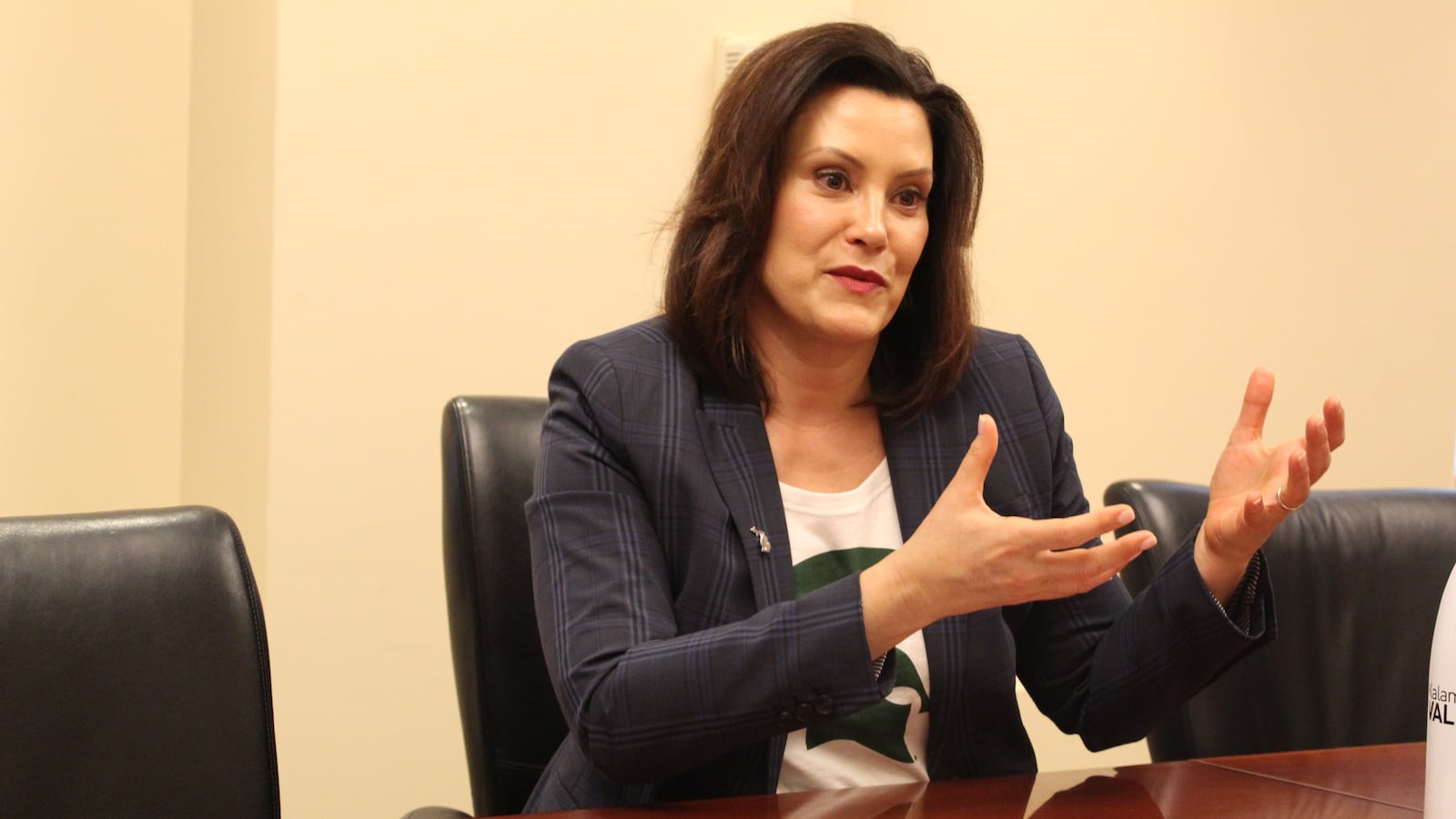Michigan’s top politicians are still locked in a battle over the state budget, and dozens of education programs are hanging in the balance as a result.
A funding dispute around charter schools has drawn the most attention. But that’s just one of the education-related line-item vetoes that Gov. Gretchen Whitmer announced earlier this month.
Whitmer also rejected funding for English learners, the teacher training program Teach for America, and dozens of other education programs.
The education-related vetoes total $127 million — only a sliver of the $15.2 billion state education budget — but their effects could be especially significant in Detroit.
Lawmakers on both sides of the aisle have already produced bills that would add money back into the budget, effectively reversing Whitmer’s vetoes.
But Republican legislative leaders said after meeting with the governor Tuesday that the budget is “done,” raising the possibility that the budget Whitmer signed will remain in place, including the vetoes.
A Whitmer spokeswoman did not immediately return a request for comment.
She has framed the vetoes as a negotiating tool. By vetoing funding for programs that are important to Republican voters and donors, she hopes to pressure leaders of the GOP-controlled legislature to renegotiate some aspects of the budget, which was developed without her input.
Teach for America, for example, doesn’t operate in any Michigan cities besides Detroit. Last year, it recruited, trained, and supported 68 teachers in the city, thanks in part to $300,000 in state funding. The organization also hosted a summer enrichment program for Detroit students.
The Republican budget proposed to increase funding for the program to $800,000, but Whitmer vetoed it. Teach for America, a nonprofit company that is not affiliated with either political party, will still have enough private funds to operate, but the veto puts a sizeable hole in its budget.
“The governor felt the need to make a statement to bring the Republican party back to the negotiating table, and she vetoed a whole lot of things, and we were among the crew,” said Armen Hratchian, executive director of Teach for America in Detroit.
The veto would represent a 25% cut to the organization’s budget, Hratchian said. The impact is magnified, he added, because the state support had helped raise private dollars to support programs.
Whitmer’s vetoes also targeted the money designated for supporting English learners, slashing $3 million from a proposed $10 million funding increase.
Suzanne Toohey, an English-as-a-second-language consultant for Oakland Schools, said that money would have been used to hire more teachers and bilingual parents who serve as student advocates.
“We’ll see more training for general education teachers, which we really need,” she said.
Whitmer’s proposed budget included extra funds for English learners. It was unclear why they were included in her vetoes.
Tiffany Brown, a Whitmer spokeswoman, did not return a request for comment on Tuesday.
In a statement last week, she said “the budgets from the Republican legislature were fatally flawed. Governor Whitmer had to make tough decisions to make sure families have access to the critical services that they rely on every day.”
Whitmer has called the proposed budget a “mess.” Her office characterized her vetoes as targeting pork barrel spending. Many of the vetoes focused on funds that went to private nonprofits like Teach for America.
Other vetoes could have a major impact in Detroit if they remain unchanged. Whitmer rejected a proposed $35 million funding increase for charter schools, the same boost that traditional districts received. Roughly half of the students in Detroit attend charter schools in the metro area.
Whitmer also vetoed $1.6 million in additional funding for strict discipline academies, charter schools designed for students who have been expelled from school or have become entangled with the juvenile justice system. Roughly half of the existing strict discipline academies are in Detroit.
Other vetoed programs include:
- $7 million for isolated school districts
- $10 million for school safety grants
- $15 million for summer reading programs
- $2.5 million for the development of a program that would measure teacher effectiveness based on student test scores (so-called value added measurement)
- $16 million for upgrades to equipment used in Career and Technical Education programs

